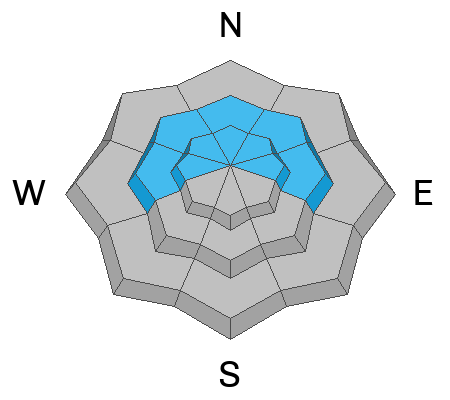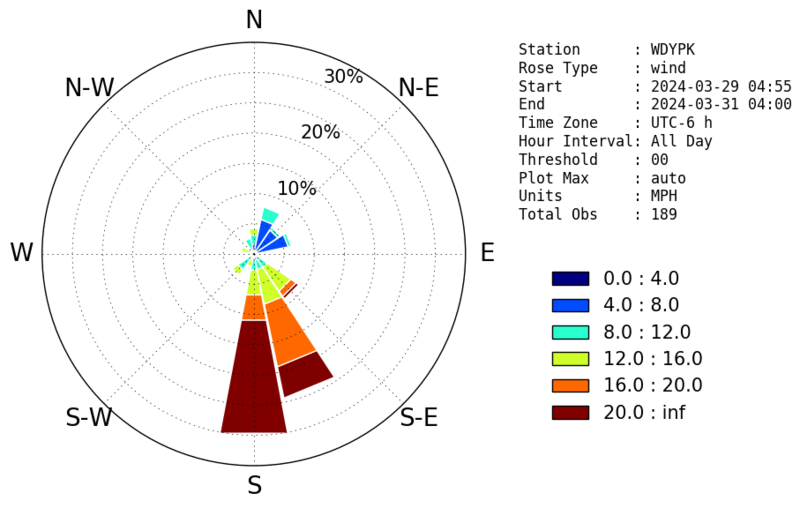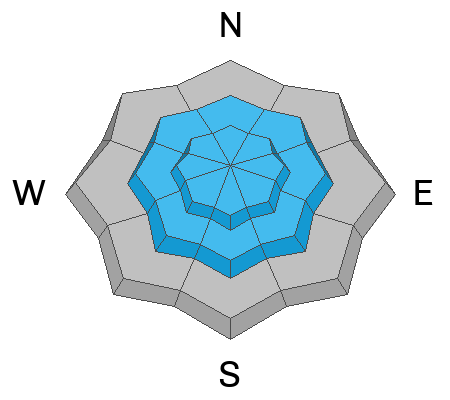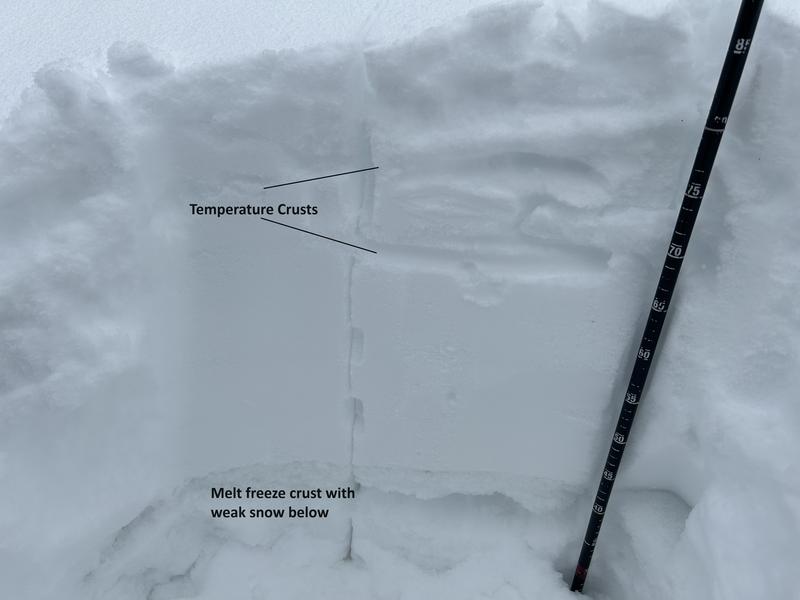Forecast for the Uintas Area Mountains

Issued by Mark Staples on
Sunday morning, March 31, 2024
Sunday morning, March 31, 2024
The Easter Bunny has been delivering snow for the last handful of days and the powder is stacking up.
I am certain that the wind has been drifting some of that powder above treeline (and to a lesser degree near treeline) where there should be soft slabs of wind drifted snow you can trigger.
I am uncertain about the stability of the new snow on slopes that haven't been touched by winds where soft slab avalanches in the new snow are possible.
Today the avalanche danger is CONSIDERABLE above treeline where more snow has fallen and winds from the south and southeast have been blowing.
Near treeline where there is still a decent amount of new snow but not as much wind, the danger is MODERATE.
Below treeline with less snow and less wind, the danger is LOW.

Low
Moderate
Considerable
High
Extreme
Learn how to read the forecast here













